Filter by
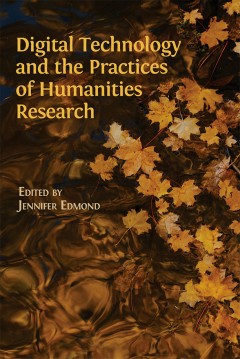
Digital technology and the practices of humanities research
How does technology impact research practices in the humanities? How does digitisation shape scholarly identity? How do we negotiate trust in the digital realm? What is scholarship, what forms can it take, and how does it acquire authority?This diverse set of essays demonstrate the importance of asking such questions, bringing together established and emerging scholars from a variety of discipl…
- Edition
- -
- ISBN/ISSN
- 9781783748419
- Collation
- XI, 276 p.
- Series Title
- -
- Call Number
- 303.4834 DIG d
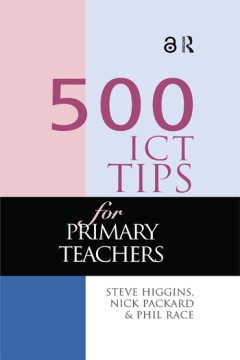
500 ICT tips for primary teachers
Information and Communications Technology (ICT) has been the focus of much debate and development within education, especially in the primary sector. This text offers tried and tested ideas for using IT effectively across the whole primary curriculum.
- Edition
- -
- ISBN/ISSN
- 9780749428631
- Collation
- viii, 200p. : ill.
- Series Title
- -
- Call Number
- 372.1334 HIG f
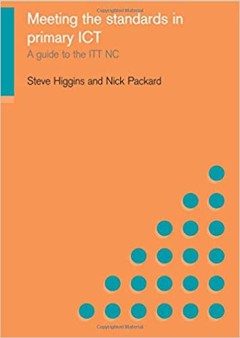
Meeting the standards in primary ICT : a guide to the ITTNC
This practical guide to using ICT in the primary classroom addresses all the concerns of student teachers and provides plenty of ideas and advice on how to incorporate ICT into classroom practice on a daily basis. The authors bring together theory and practice to help prospective and new teachers acquire and develop the skills required for using ICT effectively. Meeting the Standards in Primary…
- Edition
- -
- ISBN/ISSN
- 9780415230476
- Collation
- xii, 209p. : ill.
- Series Title
- -
- Call Number
- 371.334 HIG m
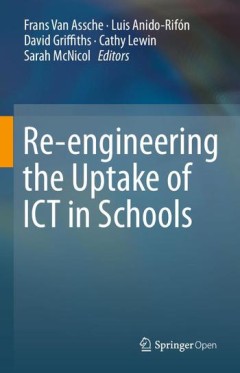
Re-engineering the uptake of ICT in schools
This book reports on a novel and comprehensive approach to the uptake of ICT in Schools. It focuses on key questions, pedagogically sound ways of introducing ICT, new technical artifacts supporting the approach, the evaluation in a large-scale validator, and future work. While many innovations in Technology Enhanced Learning (TEL) have emerged over the last two decades, the uptake of these inno…
- Edition
- -
- ISBN/ISSN
- 9783319193663
- Collation
- xvii, 201p. : ill.
- Series Title
- -
- Call Number
- 371.334 REE r
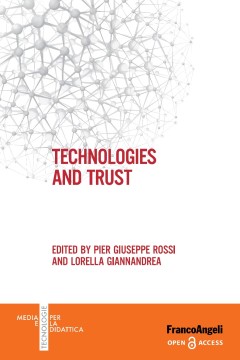
Technologies and trust
What is trust and how new technologies are changing or affecting the concept of trust? This publication offers insights from researchers working in educational technology and distance education, collected in the frame of the European FP-7 Marie-Curie People project “Stimulators and inhibitors of a culture of trust in educational interactions assisted by modern information and communication te…
- Edition
- -
- ISBN/ISSN
- 9788891754554
- Collation
- 98p. : ill.
- Series Title
- -
- Call Number
- 371.33 TEC t
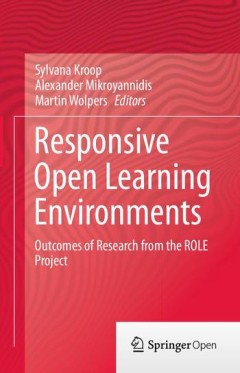
Responsive open learning environments : outcomes of research from the ROLE Pr…
This book presents the outcomes of four years of educational research in the EU-supported project called ROLE (Responsive Online Learning Environments). ROLE technology is centered around the concept of self-regulated learning that creates responsible learners, who are capable of critical thinking and able to plan their own learning processes. ROLE allows learners to independently search for ap…
- Edition
- -
- ISBN/ISSN
- 9783319023991
- Collation
- xxvi, 252p. : ill.
- Series Title
- -
- Call Number
- 371.3943 RES r
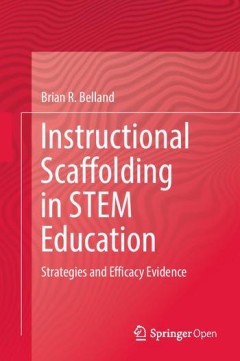
Instructional scaffolding in STEM education : strategies and efficacy evidence
This book uses meta-analysis to synthesize research on scaffolding and scaffolding-related interventions in STEM (science, technology, engineering, and mathematics) education. Specifically, the volume examines the extent to which study quality, assessment type, and scaffolding characteristics (strategy, intended outcome, fading schedule, scaffolding intervention, and paired intervention) influe…
- Edition
- -
- ISBN/ISSN
- 9783319025650
- Collation
- xi, 144p. : ill.
- Series Title
- -
- Call Number
- 510.71 BEL i
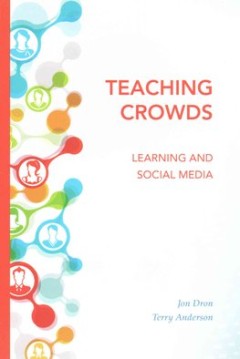
Teaching crowds : learning and social media
Within the rapidly expanding field of educational technology, learners and educators must confront a seemingly overwhelming selection of tools designed to deliver and facilitate both online and blended learning. Many of these tools assume that learning is configured and delivered in closed contexts, through learning management systems (LMS). However, while traditional "classroom" learning is by…
- Edition
- -
- ISBN/ISSN
- 9781771990004
- Collation
- xv, 353p. : ill.
- Series Title
- -
- Call Number
- 371.33 DRO t
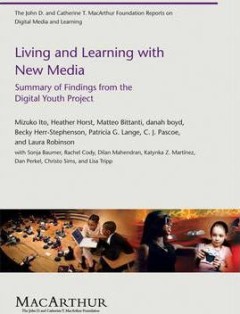
Living and learning with new media : summary of findings from the digital you…
This report summarizes the results of an ambitious three-year ethnographic study, funded by the John D. and Catherine T. MacArthur Foundation, into how young people are living and learning with new media in varied settings—at home, in after school programs, and in online spaces. It offers a condensed version of a longer treatment provided in the book Hanging Out, Messing Around, and Geeking O…
- Edition
- -
- ISBN/ISSN
- 9780262513654
- Collation
- xx, 98p. : ill.
- Series Title
- -
- Call Number
- 302.23108350973 MIZ l
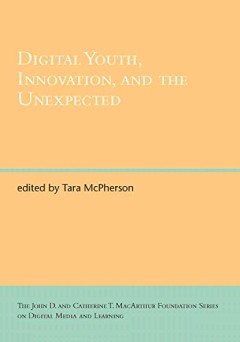
Digital youth, innovation, and the unexpected
How emergent practices and developments in young people's digital media can result in technological innovation or lead to unintended learning experiences and unanticipated social encounters.Young people's use of digital media may result in various innovations and unexpected outcomes, from the use of videogame technologies to create films to the effect of home digital media on family life. This …
- Edition
- -
- ISBN/ISSN
- 9780262633598
- Collation
- 269p. : ill.
- Series Title
- -
- Call Number
- 600 DIG d
 Computer Science, Information & General Works
Computer Science, Information & General Works  Philosophy & Psychology
Philosophy & Psychology  Religion
Religion  Social Sciences
Social Sciences  Language
Language  Pure Science
Pure Science  Applied Sciences
Applied Sciences  Art & Recreation
Art & Recreation  Literature
Literature  History & Geography
History & Geography